Bain Boehlke’s All-too Human ‘Hamlet’
Sheila Regan profiles Bain Boehlke, founder of the Jungle Theater in Minneapolis, and reflects on a production he's waited a lifetime to bring to fruition - his own staging of Shakespeare's "Hamlet."
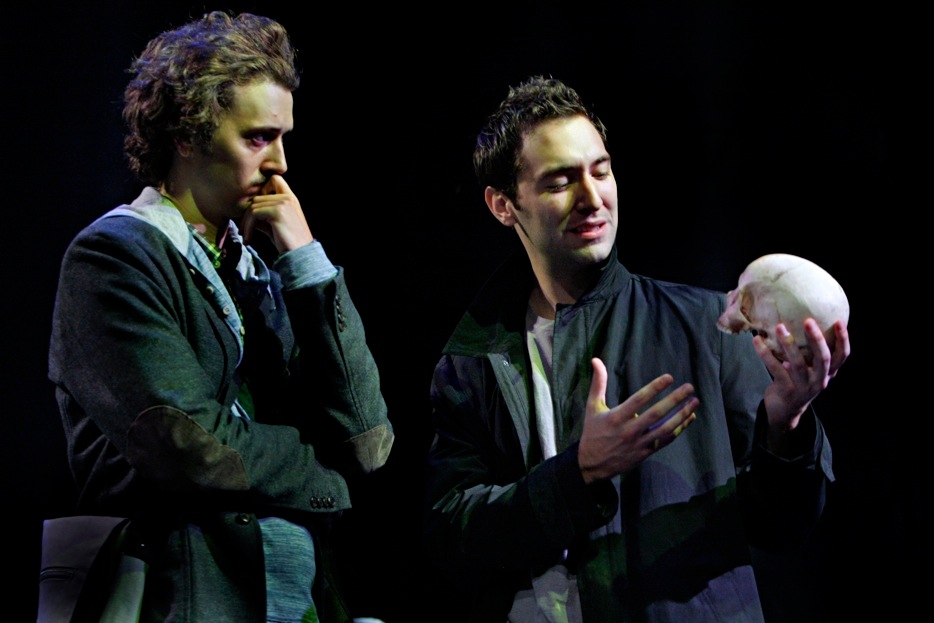
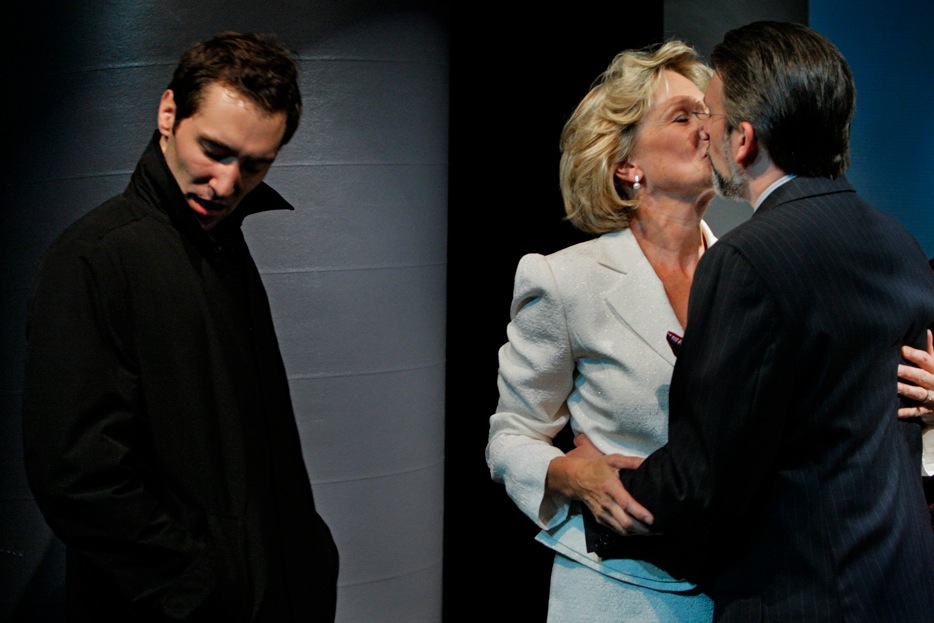
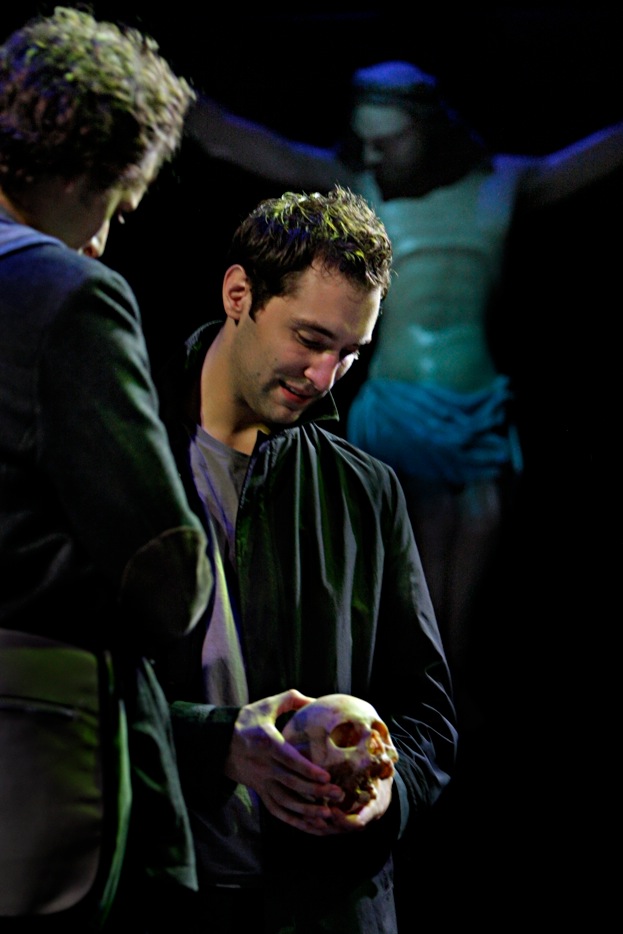
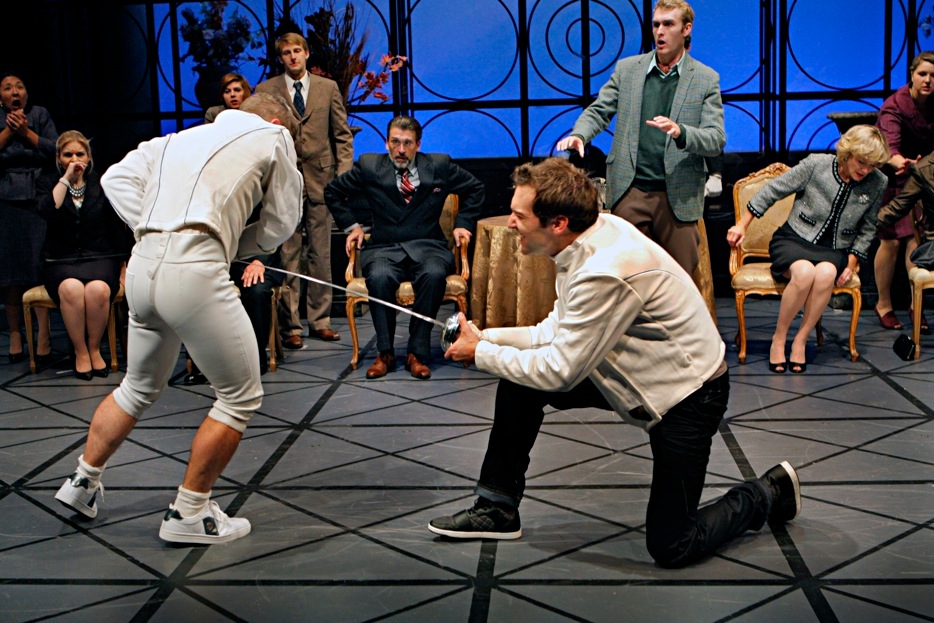
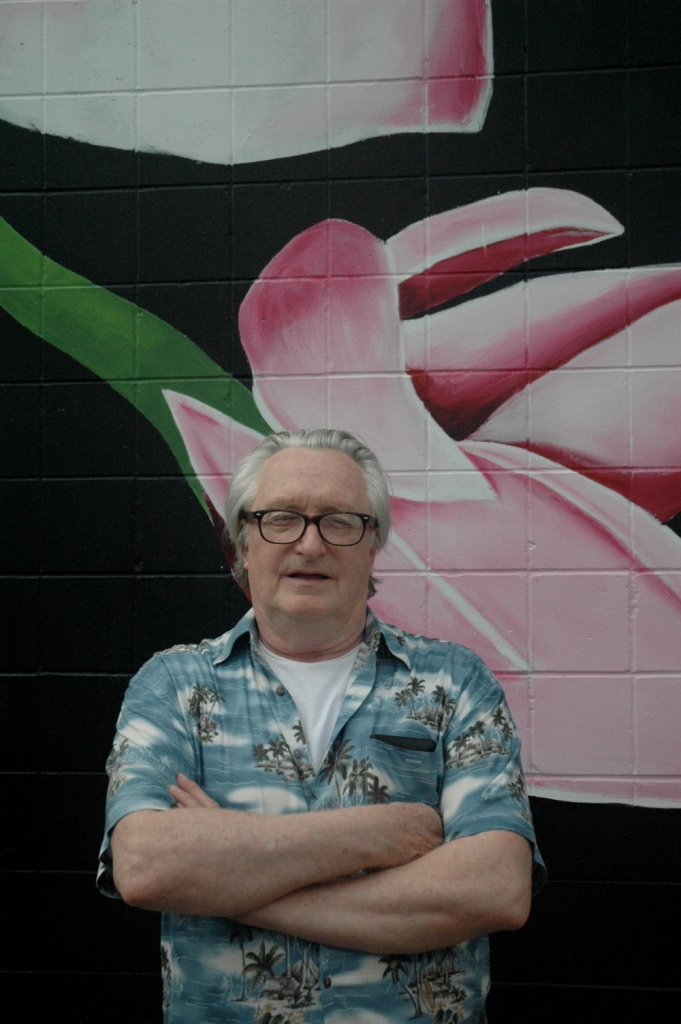
When Bain Boehlke was a young actor, he was sure that he was going to have a chance to play Hamlet. He was blond, after all, and felt an affinity for the role; it was a part he felt he was meant to perform. He had a copy of the play with him when he was in Berlin, serving in the army from 1959-1961. He was in Germany when the Berlin wall went up.
“The challenge of being an actor,” Boehlke says, “is that the opportunity must arise.” The chance to play the prince of Denmark is rare — and Boehlke never got that chance. Instead, today, as the Artistic Director of the Jungle Theater, he presents his version of the classic with actor Hugh Kennedy playing the lead role.
According to Boehlke, plays like Hamlet are “corroded with old productions;” he says taking them on requires a process of removing the “barnacles” to find what is authentic about the piece.
In Kenneth Branagh’s 1996 version there’s too much carrying on, Boehlke says. “I don’t like it.” He prefers the 2000 film iteration where Ethan Hawke plays Hamlet. “It’s not that someone dies,” he says, “the tragedy is the hearts that are broken, like a stone dropped in the water, and the widening rings of heartbreak, the families that are broken and shattered — that’s the gestalt. Everything is ruined.”
For his Hamlet, Boehlke has chosen Hugh Kennedy, who went through the U of M/ Guthrie BFA program. It’s apparent why he was cast: He plays the part with nuance and vulnerability, much like Ethan Hawke, with a balance of naturalness and tension that is perfect for the role. The major flaw in his portrayal is that he is too sarcastic, occasionally repeating words for effect at the expense of the poetry in Shakespeare’s language. In leaning toward authenticity, Kennedy loses some of the universal emotion that Shakespeare’s rich text brings. Even though not all of us are princes of Denmark, and very few of us had our fathers killed by our uncles who then married our mothers — the way Hamlet speaks about the struggles of life, about the struggle, to go on or not go on, lies at the heart of our shared human experience. Hamlet’s is the ultimate teen angst story, the ultimate midlife crisis — the story that gets at the crux of what it means to be alive.
That said, given the aesthetics of this production and Boehlke’s ambition to portray Hamlet with as much grit and real humanity as possible, Kennedy’s interpretation works.
Hamlet’s is the ultimate teen angst story, the ultimate midlife crisis story — it gets done and redone so often because his is the story that gets at the crux of what it means to be alive.
For his part, Boehlke had his own journey in the past few years prior to directing this play. In the summer of 2008, on July 4, he quit smoking; his mother died and he celebrated his birthday on the same day later that month, on July 18. “Everything ended and began,” he says. “It was like being born again.”
Boehlke says he started the Jungle Theater in 1991 “so I wouldn’t have to look for work.” That fateful summer three years ago, he was in the lobby, looking over the coming season, which included a production of A Life in the Theater — the first play that the Jungle ever mounted. “I said, ‘Oh my God this is the end of an arc’,” Boehlke remembers.
Boehlke was born in the northernmost town in the United States: Warroad, Minnesota, “where the snow is always 8 feet deep,” Boehlke quips. He founded the Jungle in his 40s. He says he had a vision of such a theater in 1986, while vacationing Puerto Vallarta. “I saw a little poster in my mind’s eye,” he says. The poster he dreamed up was midnight blue with a blue background, with two palm trees and snowballs falling through the air. He says he forgot about it for several years until 1990, when he moved back to Minneapolis, at the age of 50, with nothing in hand but a suitcase. He was living near Lake and Lyndale and noticed two empty storefronts; his memory jogged back to the vacation daydream of a theater. Over the last 20 years, the Jungle has become the “dream I could never imagine,” Boehlke says.
Nearly 20 years later, Boehlke followed his instincts again, taking some time off, traveling through the Pacific Northwest, Canada, Hawaii. He came back in 2010 to have his most successful year yet at the Jungle, despite the economy. And on the tail of a successful run of A Funny Thing Happened on the Way to the Forum this past spring, Boehlke dove into Hamlet.
Unlike some of his counterparts — artists who emerged out of the avant garde cultural moment of 1960s — Boehlke is interested in the classics. There’s something there, in the work of playwrights like Shakespeare and Chekhov, that he’s sure holds as much truth now as it ever has. “Tolstoy lives today on our bookshelves,” Boehlke says. “But there’s something transcendent and deep [in his work] that penetrates and transcends. We seek this in our productions.” Of course, the classics bring with them a history of many renditions, and they aren’t all good. “You gotta see 20 plays to see a good production,” Boehlke says. But when you do, “it’s so cool… it’s so delightful to the human spirit.”
As Boehlke was thinking about his production of Hamlet, he drew from memories of the Kennedy assassination, the Martin Luther King assassination, and the twin towers falling on 9/11. As for the latter event, Boelke is convinced the government’s role is still an unexplored question. “We can’t stand the thought we might be untoward,” he says. With that in mind, it’s no wonder that the world he’s created here is grim, incorporating elements of intrigue and surveillance. “Big Brother has arrived,” Boehlke says. “1984 is here.”
The set design is the most powerful thing about Boehlke’s production of Hamlet: in his version, the palace the Danes live in was built in the 1970s by the King who was murdered, he explains; his version of Hamlet’s castle has been renovated, but retains aspects of the classical original. It’s a palace on a cliff, overlooking the oceanm, but ancient-looking pillars are juxtaposed with surveillance screens and the modern dress of the costume design; the quarry-stone walls have massive doors and windows.
Boehlke’s Hamlet is unsettling, calling into question our trust in government and those that hold power. It’s also ambitious and visually stunning. And while the acting choices tend toward realism, all the production’s nuances amount to something that, in the end, feels more than anything like a cinematic piece.
Related performance details: Hamlet, written by Shakespeare and directed by Bain Boehlke, is on stage at the Jungle Theater in Minneapolis through October 9. Find performance times and ticket information on the Jungle’s website.